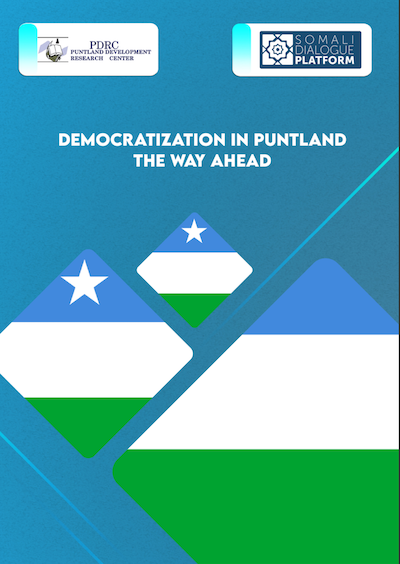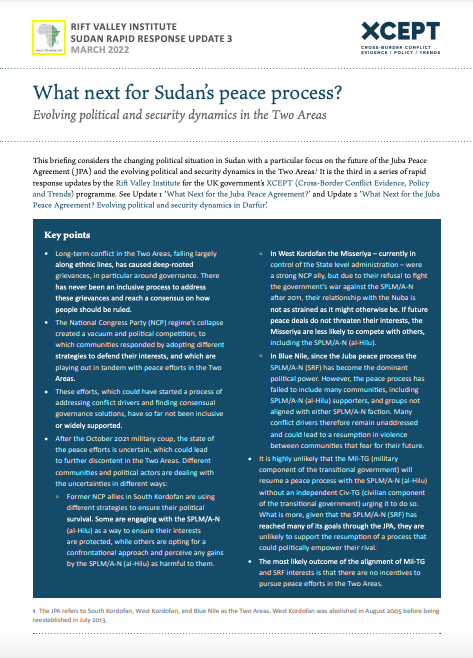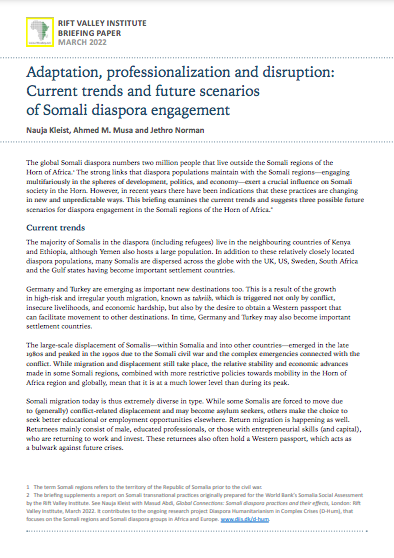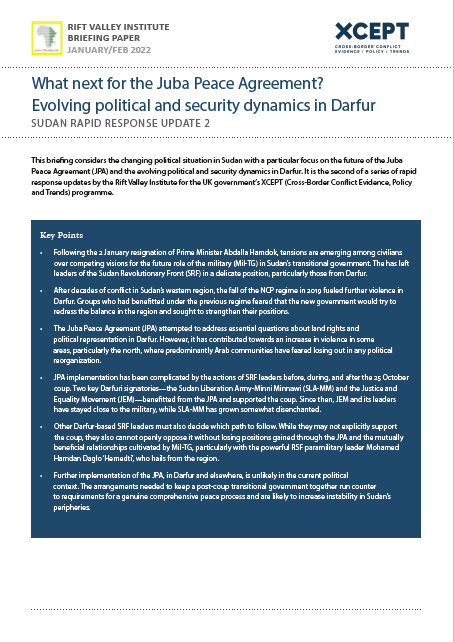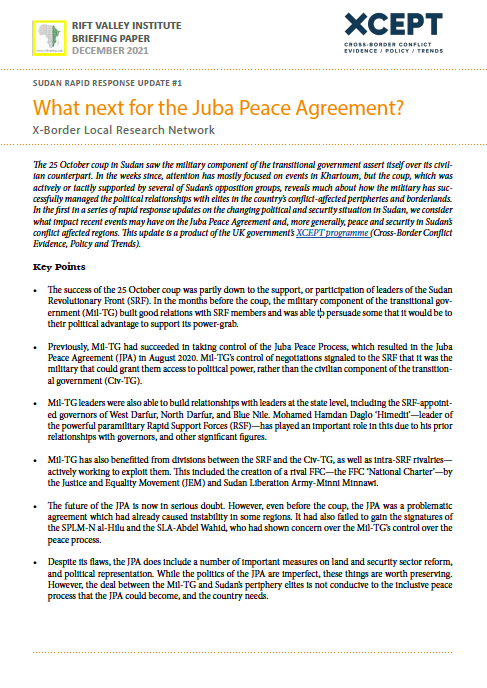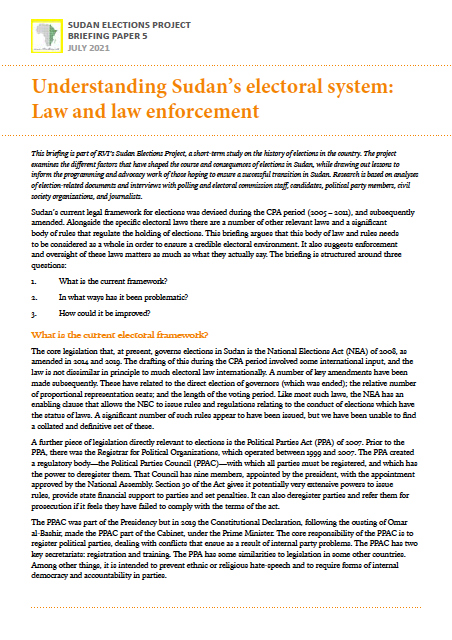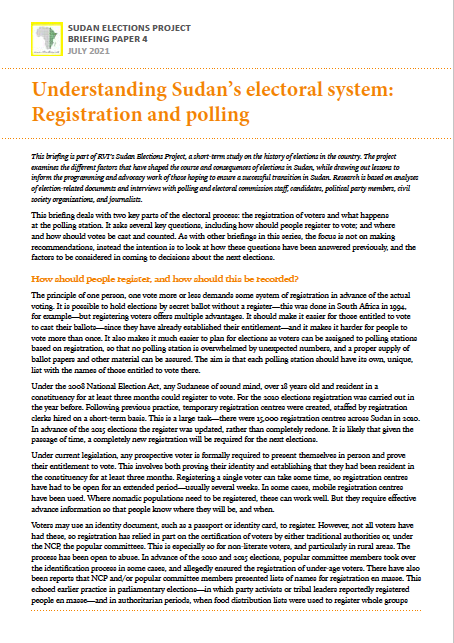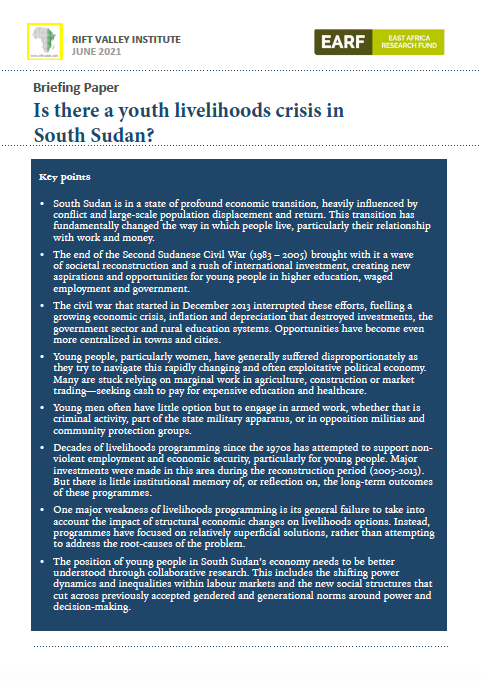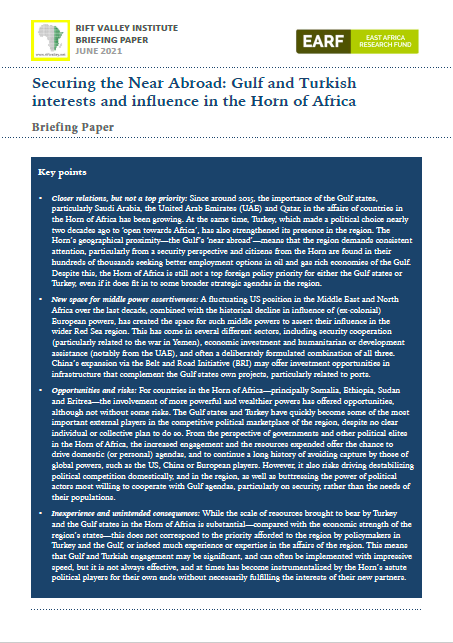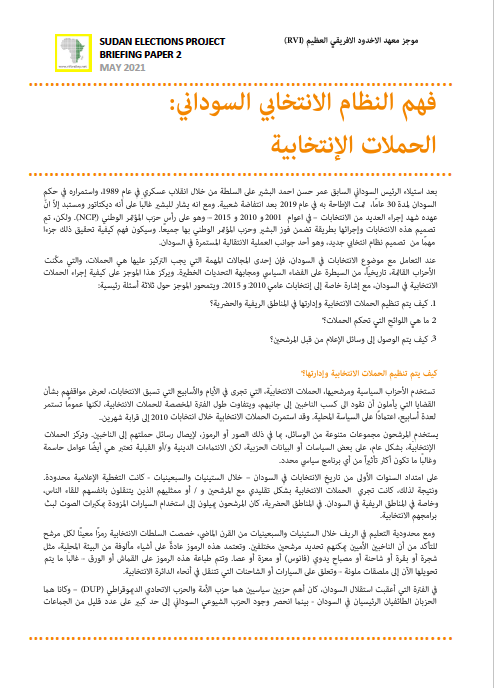This policy brief seeks to analyse the progress and challenges of Puntland’s democratisation process and, in so doing, help Somali and international stakeholders maintain momentum towards credible and peaceful elections. The policy brief provides an overview of TPEC III…
RVI publishes books, research reports, research papers, briefings and meeting reports in a range of formats. Publications cover policy, research, arts, culture and local knowledge in the countries of eastern and central Africa. Research publications—books, reports and papers—are peer-reviewed. Some RVI publications are also available in French and/or Arabic.
The RVI is a signatory of the Budapest Open Access Initiative (2001); all publications are free for download in PDF format under Creative Commons licences. The views expressed in books and reports published by the RVI are those of the authors, not the Institute.
SEARCH
PUBLICATION TYPE
LANGUAGE
REGION
COUNTRY
This briefing considers the changing political situation in Sudan with a particular focus on the future of the Juba Peace Agreement (JPA) and the evolving political and security dynamics in the Two Areas. It is the third in a…
The global Somali diaspora numbers two million people that live outside the Somali regions of the Horn of Africa. The strong links that diaspora populations maintain with the Somali regions—engaging multifariously in the spheres of development, politics, and economy—exert a…
This briefing considers the changing political situation in Sudan with a particular focus on the future of the Juba Peace Agreement (JPA) and the evolving political and security dynamics in Darfur. It is the second of a series of…
The 25 October coup in Sudan saw the military component of the transitional government assert itself over its civilian counterpart. In the weeks since, attention has mostly focused on events in Khartoum, but the coup, which was actively or…
This briefing is part of RVI’s Sudan Elections Project, a short-term study on the history of elections in the country. The project examines the different factors that have shaped the course and consequences of elections in Sudan, while drawing…
This briefing is part of RVI’s Sudan Elections Project, a short-term study on the history of elections in the country. The project examines the different factors that have shaped the course and consequences of elections in Sudan, while drawing…
South Sudan is in a state of profound economic transition, heavily influenced by conflict and large-scale population displacement and return. This transition has fundamentally changed the way in which people live, particularly their relationship with work and money. The…
Since around 2015, the importance of the Gulf states, particularly Saudi Arabia, the United Arab Emirates (UAE) and Qatar, in the affairs of countries in the Horn of Africa has been growing. At the same time, Turkey, which made…
بعد وصوله إلى السلطة من خلال انقلاب عسكري في عام ١٩٨٩، حكم الرئيس عمر البشير السودان لمدة ٣٠ عامًا حتى تمت الإطاحة به في عام ٢٠١٩ بعد انتفاضة شعبية. بينما يُشار إلى البشير غالبًا على أنه ديكتاتور ومستبد، فقد…
Recent Publications

EWNET Writes: Writing Workshop Session I
December 18, 2025
The Ethiopian Women Researchers Network (EWNET) inaugural writing workshop series aims to not only provide women researchers with uninterrupted time for their scholarly projects, but also build a supportive academic community. The first session, entitled ‘EWNET Writes: Writing Workshop Session

SSC-Khaatumo: Perspectives on the significance and implications of its formation
December 12, 2025
On 15 April 2025, during a visit to the city of Las Anod in Sool, Prime Minister Hassan Abdi Barre officially declared the federal government’s recognition of SSC-Khaatumo (SSC-K hereafter) as a federal member state, marking an important milestone in

Aid and Conflict Sensitivity in Contemporary Ethiopia
November 17, 2025
This study assesses conflict sensitivity practices among humanitarian, development and peacebuilding (HDP) actors in Ethiopia. It seeks to raise awareness and foster a deeper understanding of the evolving aid landscape in the country while analysing the challenges that affect conflict-sensitive

